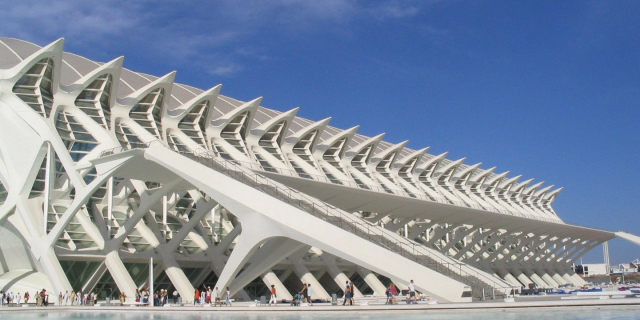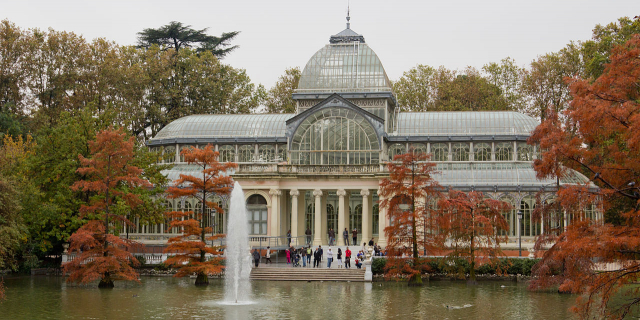València
ValenciaContext of Valencia
Valencia (Valencian: València) is the capital of the autonomous community of Valencia and the third-most populated municipality in Spain, with 791,413 inhabitants. It is also the capital of the province of the same name. The wider urban area also comprising the neighbouring municipalities has a population of around 1.6 million, constituting one of the major urban areas on the European side of the Mediterranean Sea. It is located on the banks of the Turia, on the east coast of the Iberian Peninsula, at the Gulf of Valencia, north of the Albufera lagoon.
Valencia was founded as a Roman colony in 138 BC. Islamic rule and acculturation ensued in the 8th century, together with the introduction of new irrigation systems and crops. Aragonese Christian conquest took place in 1238, and so the city became the capital of the Kingdom of Valencia. The city's population thrived in the 15th century, owing to trade with t...Read more
Valencia (Valencian: València) is the capital of the autonomous community of Valencia and the third-most populated municipality in Spain, with 791,413 inhabitants. It is also the capital of the province of the same name. The wider urban area also comprising the neighbouring municipalities has a population of around 1.6 million, constituting one of the major urban areas on the European side of the Mediterranean Sea. It is located on the banks of the Turia, on the east coast of the Iberian Peninsula, at the Gulf of Valencia, north of the Albufera lagoon.
Valencia was founded as a Roman colony in 138 BC. Islamic rule and acculturation ensued in the 8th century, together with the introduction of new irrigation systems and crops. Aragonese Christian conquest took place in 1238, and so the city became the capital of the Kingdom of Valencia. The city's population thrived in the 15th century, owing to trade with the rest of the Iberian Peninsula, Italian ports and other locations in the Mediterranean sea, becoming one of the largest European cities by the end of the century. Already harmed by the emergence of the Atlantic Ocean in detriment of the Mediterranean in the global trade networks and the insecurity created by Barbary piracy throughout the 16th century, the city's economic activity experienced a crisis upon the expulsion of the moriscos in 1609. The city became a major silk-manufacturing centre in the 18th century. The city served as the accidental seat of the Spanish Government from 1936 to 1937 during the Spanish Civil War.
The city's port is the 5th-busiest container port in Europe and the second busiest container port on the Mediterranean Sea. The city is ranked as a Gamma-level global city by the Globalization and World Cities Research Network. Its historic centre is one of the largest in Spain, with approximately 169 ha (420 acres). Due to its long history, Valencia has numerous celebrations and traditions, such as the Falles, which were declared Fiestas of National Tourist Interest of Spain in 1965 and an intangible cultural heritage by UNESCO in November 2016. In 2022, the city was voted the world’s top destination for expats, based on criteria such as quality of life and affordability.Joan Ribó from Compromís has been the mayor of Valencia since 2015.































